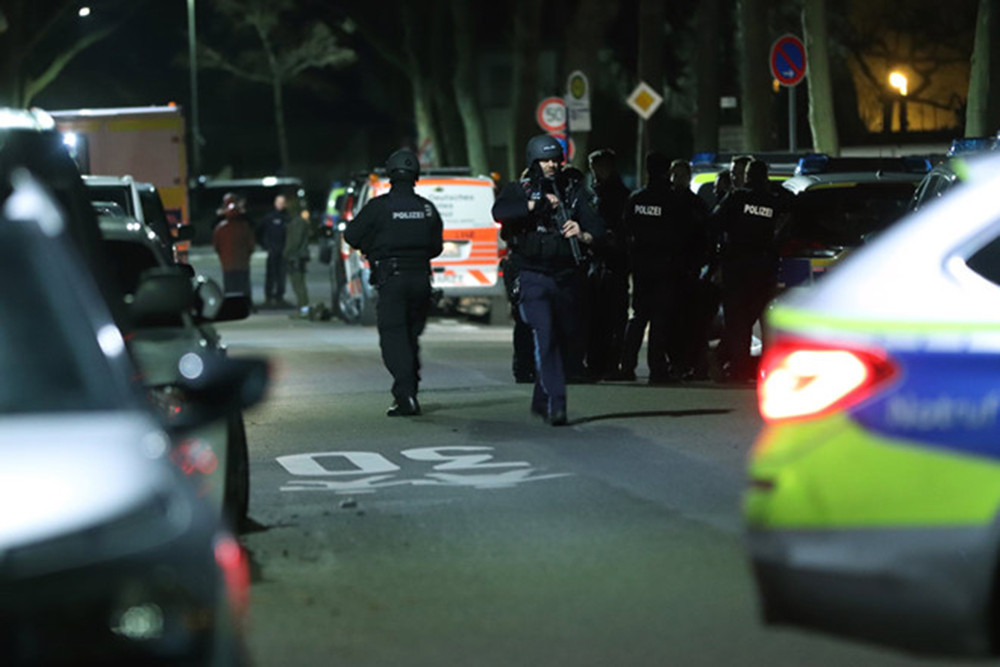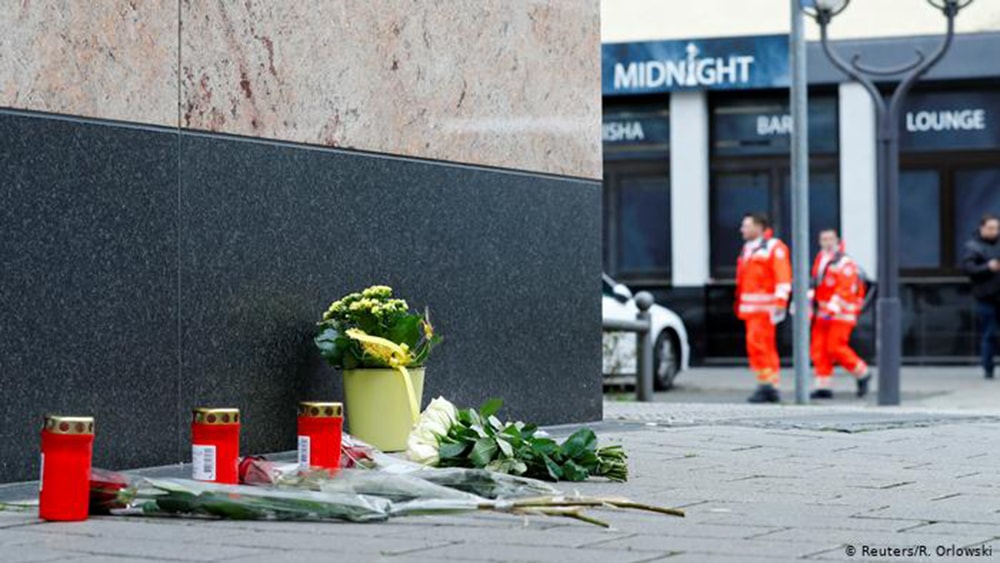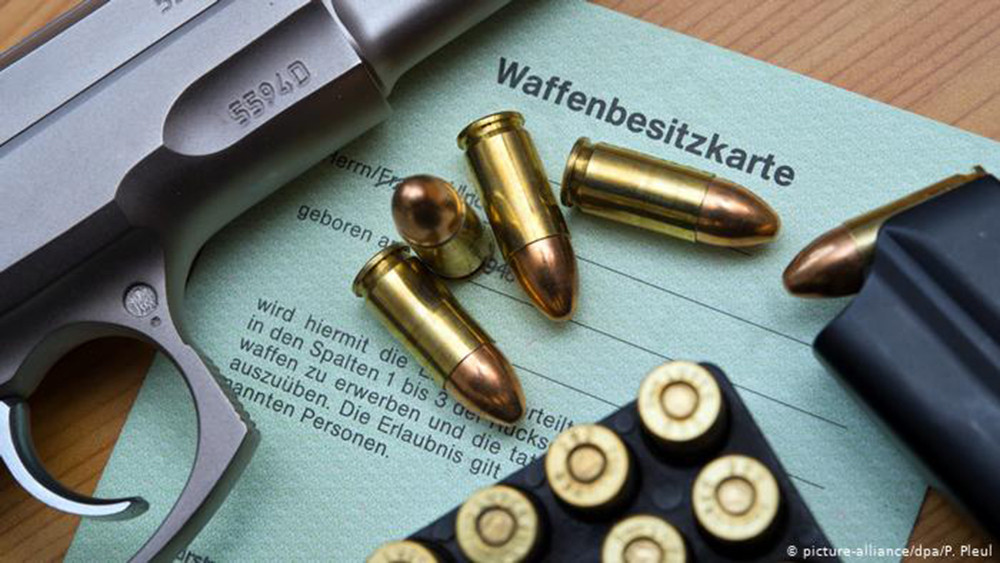Shooting in Germany: Potential danger of extremism
(Baonghean) - Germany has just experienced one of the most horrific mass shootings in recent years. According to initial assessments, it seems that the perpetrator has far-right, anti-immigrant views. This further highlights the growing threat from the rising right-wing extremist movement not only within this leading European country.
Committing a crime with xenophobic motives
At around 10 pm (local time) on February 20 in Hanau, a city about 20 km east of Frankfurt, in the state of Hesse, a subject opened fire, killing 9 people at 2 shisha bars. The suspect, 43 years old, then returned home and murdered his mother before committing suicide. Among the victims, one person is currently in a very critical condition.
Looking at the targets targeted by the perpetrator in the attack, the Midnight shisha bar and the Arena bar and cafe, further strengthens the belief in the far-right motive theory.
These venues are located in predominantly immigrant areas of Hanau. In addition, shisha bars – where customers smoke flavored weed – were first popularized by Hanau’s Turkish community.
 |
| Police at the scene of the shooting in Hanau. Photo: AFP |
Local sources revealed that the first victims of the February 20 attack were all of Kurdish origin. Hesse state Interior Minister Peter Beuth said: “Our current understanding is sufficient to suggest that the incident was motivated by xenophobia.” The information Mr. Beuth referred to was likely based on a 24-page confession letter left behind by the shooter, in which he expressed his support for far-right and anti-immigrant views.
Peter Neumann, an expert at King’s College London, also accessed the confession letter and gave his own analysis on Twitter. “He hates foreigners and non-white people. Although he does not emphasize Islam, he calls for the destruction of many countries in North Africa, the Middle East and Central Asia (all of which have a majority of Muslims),” Neumann posted in an article on the morning of February 21.
This view is consistent with what the Amadeu Antonio Stiftung, a German foundation fighting right-wing extremism, found in the shooter's confession letter. "He felt a great threat to himself and his people, believing that he was the chosen one to defend them by force against an external enemy. He believed that he was chosen and therefore felt legitimately entitled to commit acts of violence," said Robert Lüdecke, the organization's head of public relations.
 |
| Flowers and candles in memory of the victims are placed outside the Midnight bar in Hanau. Photo: Reuters |
Vox cautions against reading too much into the attack, which the site sees as simply a person doing something terrible overnight. But the source notes that Germany is currently experiencing a rise in far-right violence and crime, as well as the rise of far-right parties in politics.
This is indeed a growing problem that has many people concerned, including the current leader of Germany. Chancellor Angela Merkel, in a televised speech on February 21 about the shooting, affirmed: “Racism is a poison; hatred is a poison. This poison exists in our society, and it is the cause of too many tragic events.”
The trend of far-right crime is increasing
There is no doubt that right-wing extremists are becoming a growing problem in Germany. According to estimates by the country’s Interior Ministry, neo-Nazis and other groups committed 8,605 crimes nationwide in the first half of 2019, 900 more than in the same period in 2018.
In these incidents, about 180 people were injured, and many criminals are still at large, with only 23 of the 2,625 suspects arrested. Importantly, only a small number of these incidents were violent.
It’s worth noting, however, that those numbers are likely to rise soon. “The total number of incidents is not necessarily higher, but the severity has definitely increased,” Neumann said in an interview with Vox, adding that German officials “generally assess that there are more people with far-right leanings who are contemplating violence.” He stressed that the numbers may not be fully representative, but that’s only a matter of time.
According to a report released by German authorities last year, local police confiscated 1,091 weapons from right-wing extremists in 2018. In 2017, police confiscated only 676 weapons, representing a 61% increase in the number of weapons confiscated from far-right organizations.
 |
| The shooter had a gun license. Photo: dpa |
It appears that some of these groups are intent on carrying out large-scale acts of violence. Earlier this month, 12 people were arrested for planning an attack similar to the one in Christchurch, New Zealand, last year, when a gunman filmed himself killing Muslim worshippers in a mosque.
German authorities believe the 12 men planned simultaneous attacks on Muslims during prayers across the country. Officials have begun cracking down harder on the extremists. In December, Interior Minister Horst Seehofer said the government would set up 600 new intelligence sites to identify, track and root out right-wing violent networks.
Many saw the announcement as a response to two major attacks in Germany in 2019: the murder of politician Walter Lübcke by a right-wing extremist in June, and a shooting at a synagogue on the Jewish holiday of Atonement that left two people dead.
None of this has stopped the rise in popularity of the Alternative for Germany (AfD), a far-right party that has been winning both local and federal elections and has led the anti-immigrant wave since Germany took in more than 1 million people in 2015, many of them refugees fleeing the war in Syria.
The party's strength is one of the reasons why Ms. Merkel chose not to continue leading her center-right party because she herself could not find a way to stop the rise of AfD.
So it can be said that the far-right in Germany is not only a threat to the safety of minorities in this country, but also to their entire political system. But at least there are still some figures in power who are trying to deal with this problem.
Among them is Franziska Brantner, a Green Party member in the German Parliament, who said: “We in Germany are facing extremely dangerous right-wing radicals, who are still overlooked by many parts of the state apparatus and underestimated by some politicians. We need to fight racism and hate speech in our society, and demand that the authorities pursue and condemn right-wing terrorism unconditionally.”


